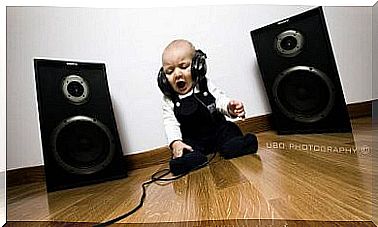Similar Or Complementary: What Kind Of Couple Do You Want To Be?

What type of couple do you want to be? Similar or complementary? This is the question many people ask themselves when choosing a partner. While some think that “opposites attract,” others want to avoid big differences at all costs to prevent conflict.
The truth, as always, is in the middle. Indeed, the two positions have a reasonable basis. Those who think that it is better to have a relationship with someone different, and therefore complementary, believe that, for example, two irritable people will end up colliding. Those who are inclined to look for a partner similar to themselves, point out that the differences sooner or later create cracks.
There are also those who take an intermediate position. According to them, the important thing is not that the members of the couple are complementary or similar, but rather that they are in good spirits. What does psychology say about it?

The charm of the opposite
When a person does not have a very positive opinion of themselves, they will often be drawn to those who are different. She will see in the other an opportunity to project or materialize something that she would like to be, without being able to achieve it. For example, someone who thinks they go unnoticed will want their partner to be very popular.
There is also the case of those who, more than a couple, seek above all a symbiosis symbiosis to move forward. The typical scenario is that of an insecure and fearful person who needs the strength of another person to protect them or give them the necessary support. In principle, this is not negative if the process results in growth. But if it encourages addiction, it becomes fundamentally negative.
This is also the case for those who, faced with the “similar or complementary” option, choose the latter because they see the couple as a team. Sometimes almost like a business. This is why they think (and the word “think” should be underlined) that it is better to combine strengths and weaknesses to potentiate common achievements.
What type of couple: similar or complementary?
Science has also questioned whether it is better for members of a couple to be similar or complementary. The University of Kansas conducted a study of 1,523 couples. They found that in 86% of cases, like couples were more durable.
Another study from the University of Michigan came to a similar conclusion. What seems most important is that there are agreements about personality, values, attitudes, recreation, alcohol consumption, and the use of technology.
Everything indicates that sometimes people are drawn to what is different. It generates curiosity and is seen as an opportunity to explore new emotional territories. However, over time, what was new begins to become an obstacle. The differences then take on a negative value.

Openness and flexibility
The dilemma posed by the “similar or complementary” question is a bit artificial. There is no way that we can find a partner who fully coincides with us or someone who perfectly complements the aspirations or needs of our world. In reality, each person reaffirms us and contrasts us at the same time. This is why the alternatives are somewhat illusory.
Having said that, it should also be noted that all studies on the subject indicate that the similarity of basic tastes and attitudes is very important. Even so, there will always be aspects that the couple will have to give in. The most stable couples are those who are able to be flexible towards each other.
The differences between the members of the couple are healthy. They are a factor that contributes to mutual growth. Much of emotional life is about how we give space to these differences. When these are few and far between, there is a good chance that this will be achieved satisfactorily and in the long term. If the differences are very deep, there is a greater likelihood that the negotiation will be complicated.
So there is an answer to the question: similar or complementary? And the answer is: both. Essentially similar and complementary through voluntary and conscious consensus. Finally, this is love: finding a balance between your own reaffirmation, while contributing to the reaffirmation of the other.










